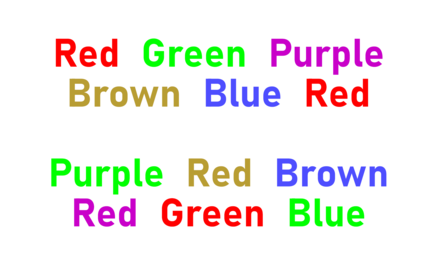White noise: how can it help us sleep better?
Published Jul 9, 2023 • By Candice Salomé
The term "white noise" refers to a sound with hypnotic properties that is thought to promote sleep, relaxation and concentration. It can be the sound of the wind blowing through the trees, the rain falling on the roof of our house, or the sound of the waves.
But what really is 'white noise'? How can these sounds help us sleep better? And where can we find them?
We explain it all in our article!

What is white noise?
"White noise" is the term used to describe sounds that allow you to isolate yourself from your environment and from other interfering noises. It refers to a sound in which all frequencies audible to humans are present at the same time (between 20 and 20,000 Hertz). They are made up of the sum of all the sound frequencies added together. It can be the sound of the wind, waves, a fan or even a hoover.
In 1990, researchers at the Queen Charlotte Hospital in London tested white noise on 20 newborns aged between 2 and 7 days. The study showed that 16 out of 20 babies fell asleep within 5 minutes thanks to the presence of white noise.
This term was chosen by analogy with white light. White light is in fact a superposition of wavelengths. White noise is a mixture of sound waves. These waves have the capacity to saturate our auditory receptors and could therefore mask disturbing noises in the bedroom - for example - and offer a non-medicinal approach to finding sleep quickly and improving its quality.
Because they are of the same intensity, these sounds are very monotonous. They help our brain to ignore high-pitched or unpleasant sounds around us.
Why does white noise help us sleep better?
It can sometimes be difficult to fall sleep in a noisy environment, for example when you live in a big city, have a neighbor who parties a little too often, or sleep next to someone who snores. Your ears will focus on these disturbing sounds, which are hard to ignore them at bedtime.
By using soothing sounds, such as white noise, your attention is drawn to sounds that have a relaxing effect and that eliminate the unpleasant sounds around you.
This way, a harmonious sound helps you fall asleep more quickly and sleep well throughout the night. The aim of white noise is to concentrate on a very specific type of sound so that you can forget about the noise pollution around you.
Are there different types of white noise?
White noise can be subdivided into other noise colors, depending on its intensity and frequency band. Each of these colors has a different effect on the mind. Thus, there exist:
Pink noise
This noise is identical to white noise but with a higher frequency reduction. Pink noise is more intense in the low frequency range and softer at the other end of the scale. By listening to pink noise at bedtime, memory can be improved the next day.
Pink noise includes the noise of the river water, rolling waves and rain.
Brown noise
These sounds are even more intense and deeper in the lower frequencies, without the high frequencies of white and pink noise. Brown noise (also called brownian or red noise) can help you relax, concentrate and sleep better.
Examples of brown noise include the sound of a waterfall, a torrent or a thunderstorm.
Purple noise
This noise is a type of sound whose volume increases in the high frequencies. Purple (also called violet) noise is derived from white noise, with the notable difference that its sound power increases by 6dB per octave. Purple noise is particularly beneficial because it blocks certain high-frequency sounds associated with tinnitus.
Blue noise
It is often referred to as high-frequency white noise. Blue noise increases in volume as its frequency increases, but at a lower level than purple noise.
Are there any contraindications for the use of white noise?
According to the results of a systemic review published in 2020, it is difficult to prove that continuous noise improves sleep, despite its fairly widespread use. Further research is necessary.
More evidence is needed to promote prolonged listening to white noise, or continuous noise, as it could adversely affect both sleep and hearing.
More recently, in August 2022, Australian researchers published an article in which they demonstrated, using the Stroop test on a large cohort of students, that white noise disrupts cognitive functions, while classical music does not.
In psychology, the Stroop effect is the interference produced by irrelevant information during the performance of a cognitive task. Difficulty ignoring, or 'filtering out', irrelevant information results in the slowing down of the reaction speed and an increase in the percentage of errors.
For example, naming the color in which each of these words is written as quickly as possible :

Source: Wikipedia
According to the Stroop effect, the first list is easier than the second in which the word and the color are incongruent.
According to this study, students who have been listening to white noise (compared with those listening to classical music or silence) saw their performance on the Stroop test decline.
Where can you find white noise?
If you want to improve your sleep with white noise, you can use one of the many playlists available on Youtube, for example.
There are also a number of downloadable applications. For example, the Rain Rain Sleep Sounds app (for Apple and Android) lets you choose from a range of sounds to help you fall asleep. If you want to use white noise to put a baby to sleep, you can turn to the Baby Sleep Whisperer app, for example.
Share your thoughts and questions with the community in the comments below!
Take care!
Sources :
Le bruit blanc, Audition Santé
Bruits blancs : comment mieux s’endormir grâce aux sons ?, Manufacture Castex
Bruit blanc : sommeil, bienfaits et risques, Passeport Santé Mentale
Peut-on vraiment s’endormir plus facilement grâce aux bruits blancs ?, Marie Claire
Tout savoir sur les bruits blancs, Minimall
Effet Stroop, Wikipédia
2 comments
You will also like

What are the dangers associated with the over-the-counter sale of certain medicines?
Dec 19, 2020 • 6 comments

 Facebook
Facebook Twitter
Twitter



